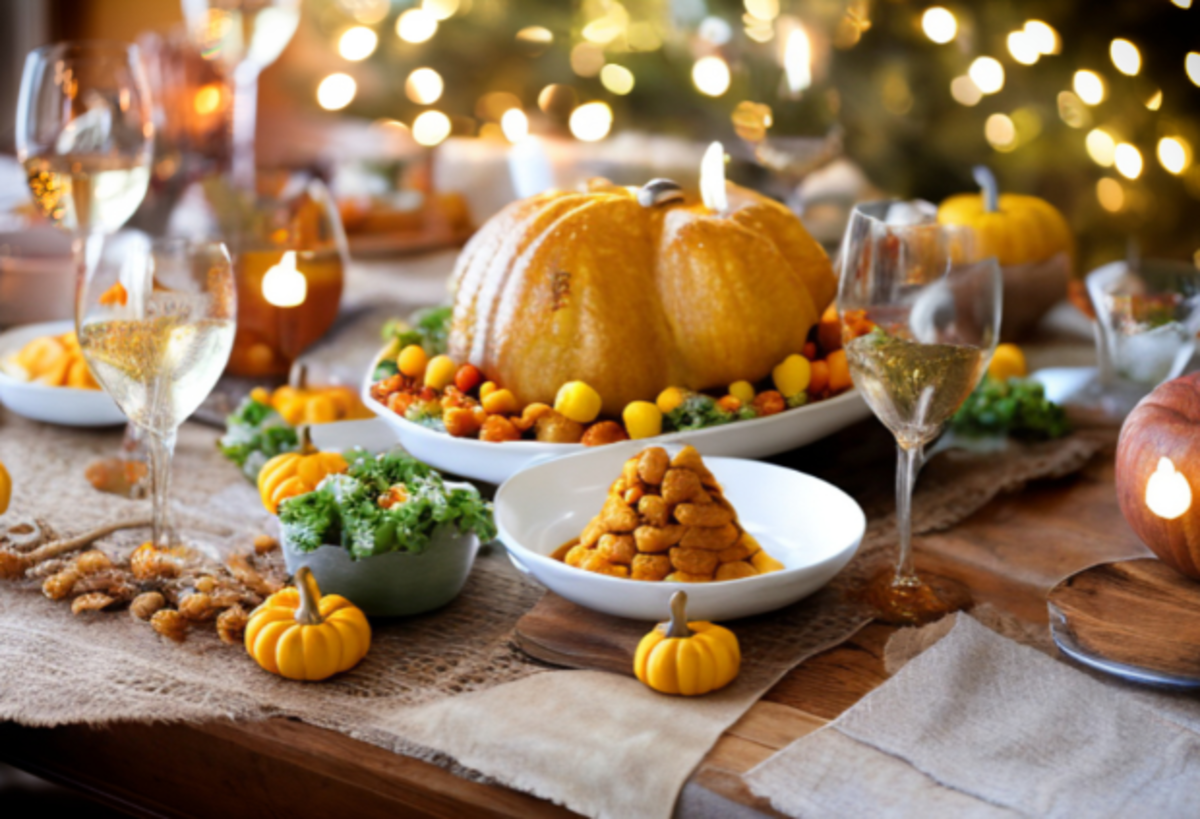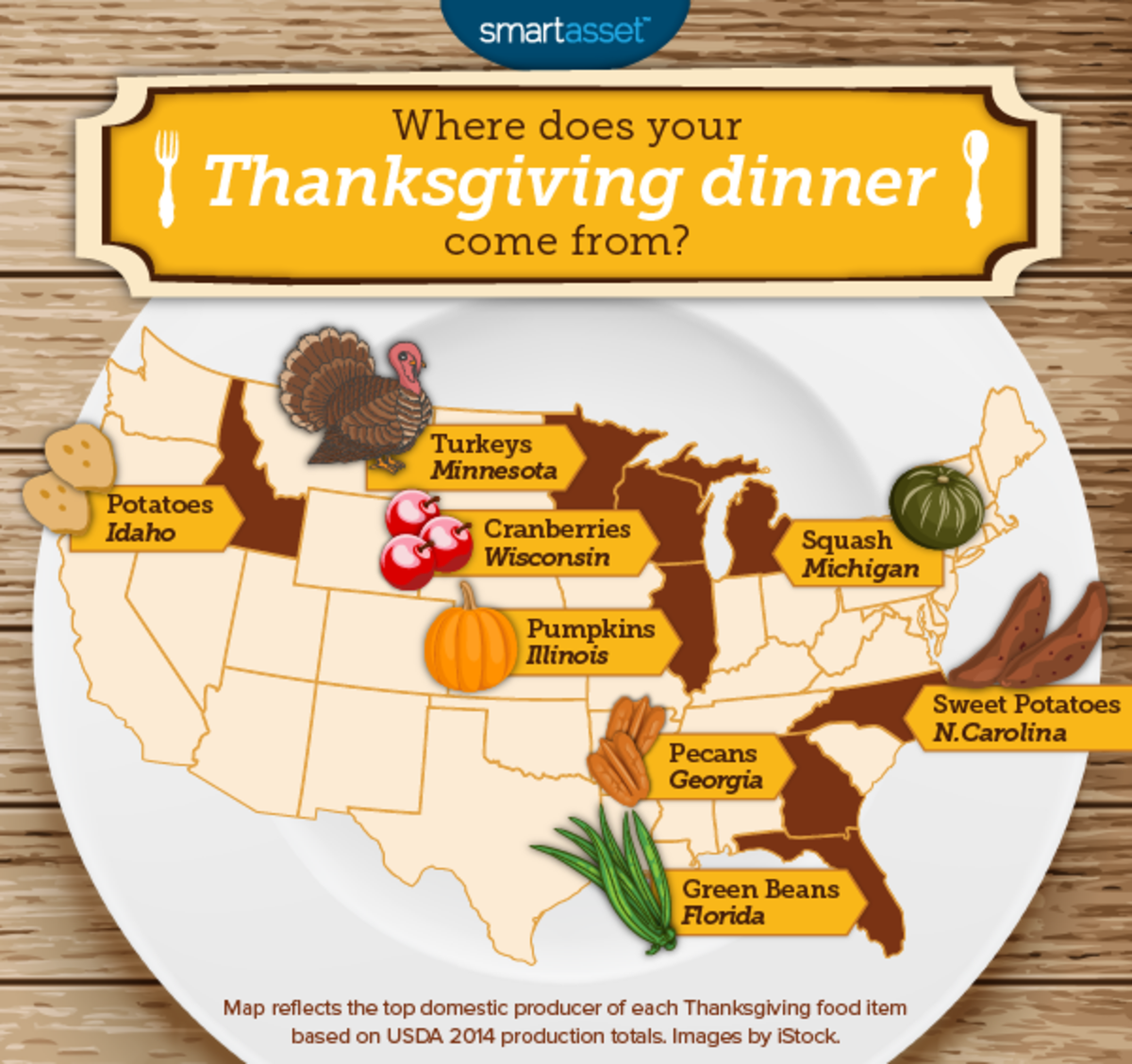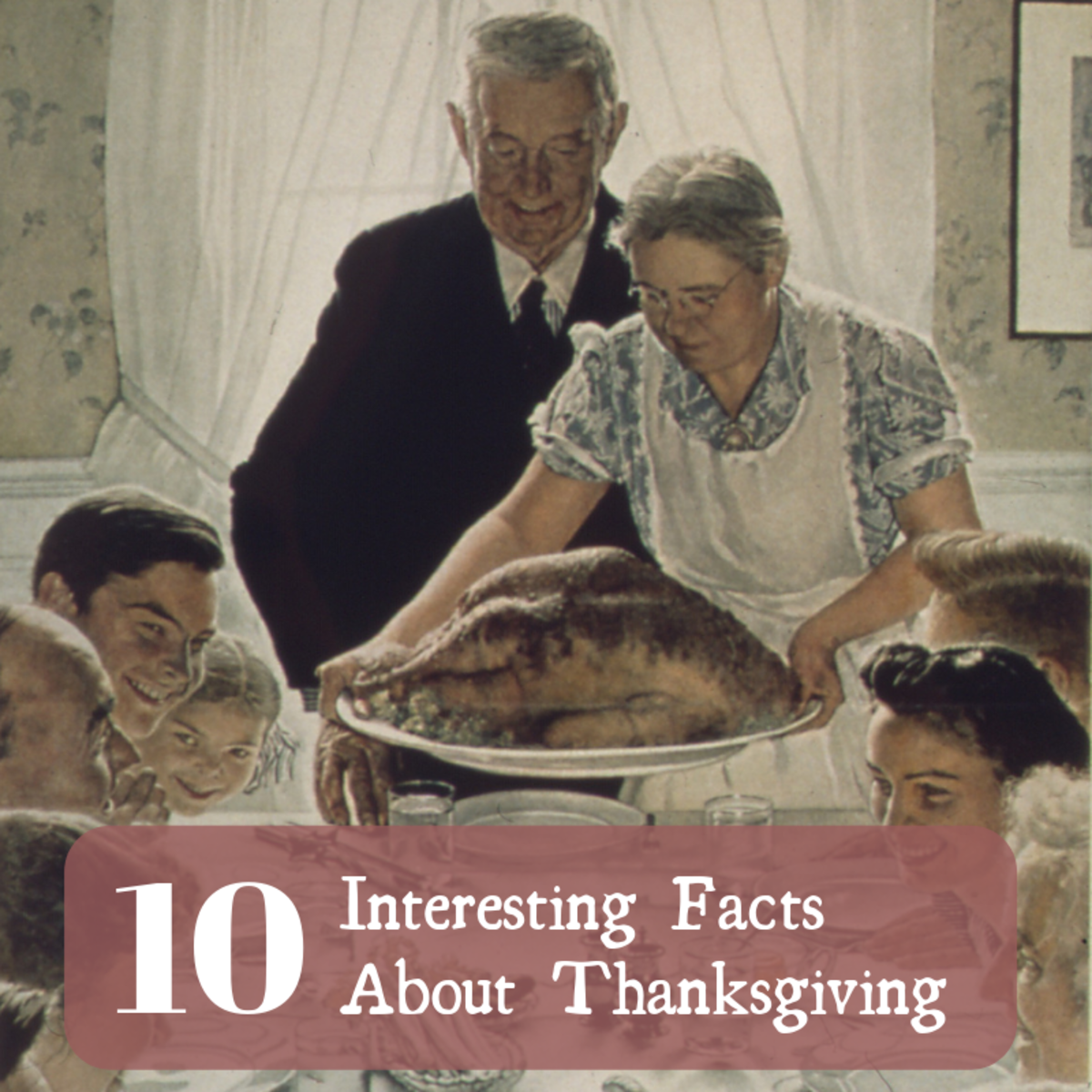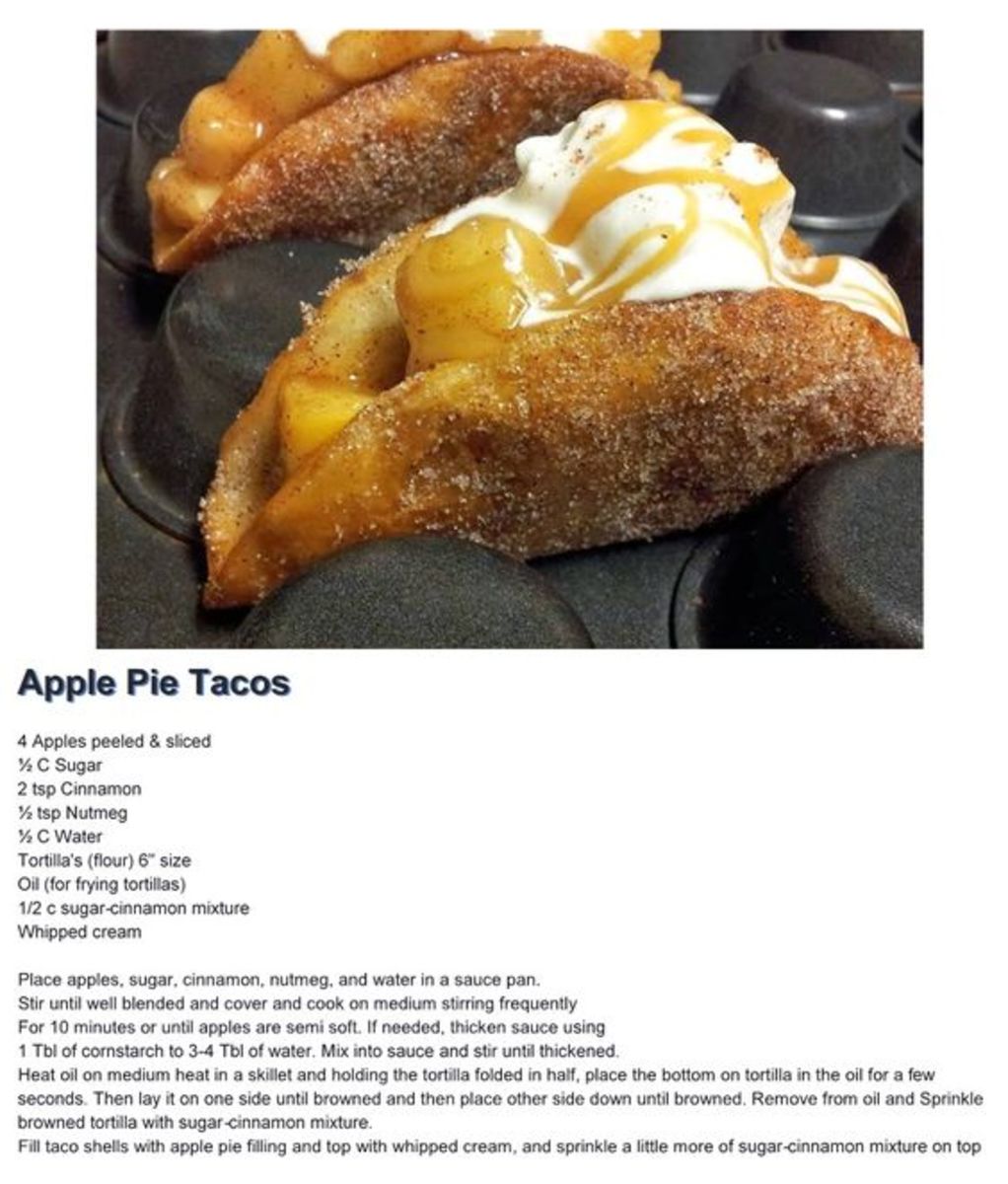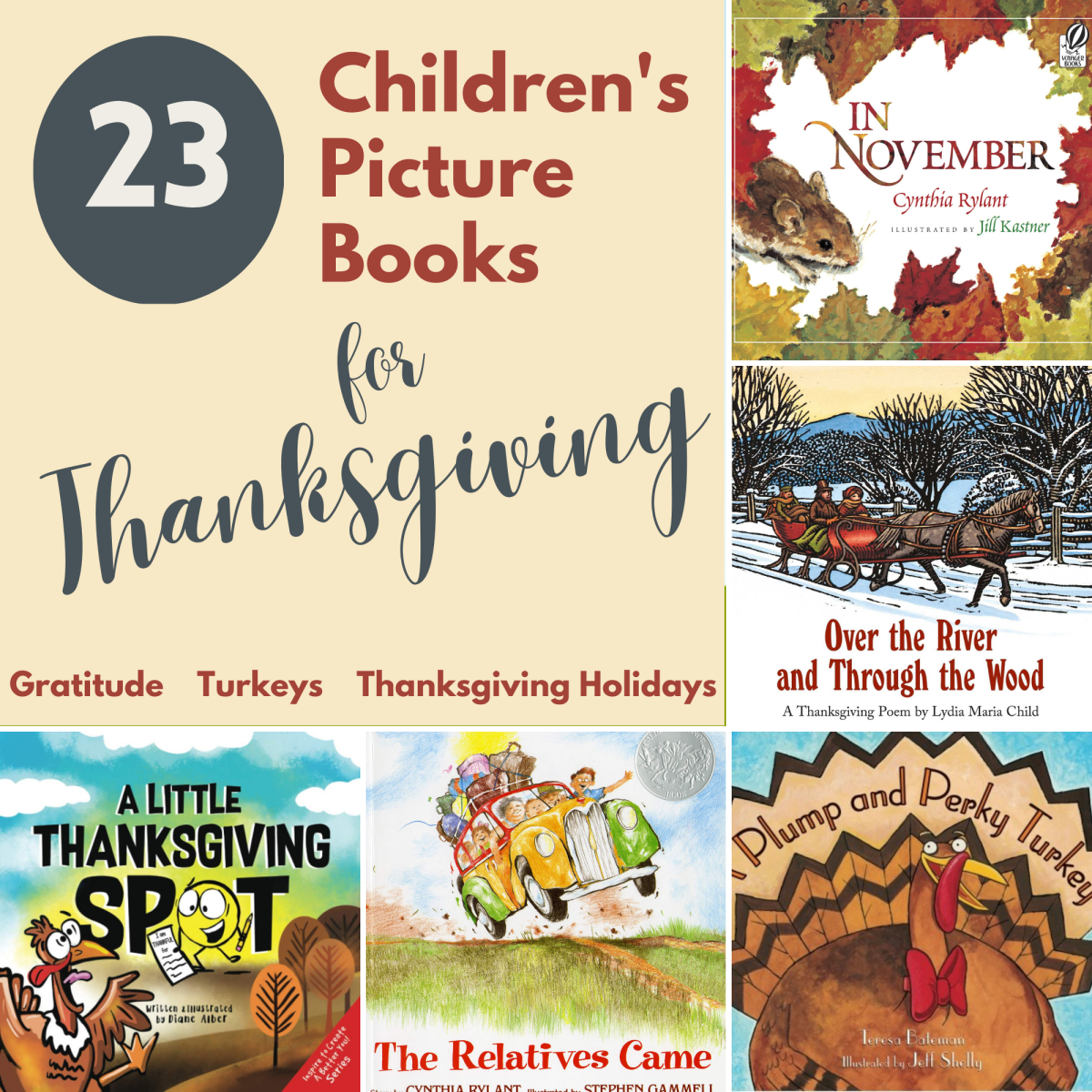Eating Turkey May Be Hazardous to Your Health
8 Disgusting Thanksgiving Turkey Facts
Did you enjoy a pleasant Thanksgiving dinner? With turkey, stuffing, cranberries and potatoes? Maybe green beans, too? Then you are among the 90% of folks in the U.S. who celebrate Thanksgiving each year with a turkey dinner.
Do you recall reading about the first Thanksgiving dinner? The colonists and the native American Indians prepared and served their food without the help of antibiotics, preservatives, pesticides, food dyes and trans-fats . . . all those lovely additives which appear in our turkey-day food today. Because supermarkets, turkey farms, and the F.D.A. had not been invented yet.
But eating turkey today can be a treacherous indulgence and hazardous to your health. Let me tell you why.
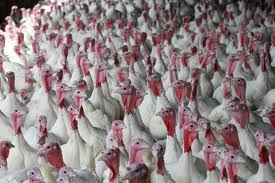
1 - Drugged Turkeys
Have you ever visited a turkey farm? They are not really farms. They are overcrowded industrial farming warehouses where turkeys are crammed together, and their collective manure breeds dangerous bacteria. As a result, the turkeys are injected with antibiotics, which have created hard-to-kill superbugs that can harm or kill humans. (See my hub “Interview with Redneck.”)
Here’s a scary statistic. Recently the National Antimicrobial Resistance Monitoring System found that a strain of salmonella in one sample of ground turkey was resistant to every single antibiotic tested. "The chances of successfully treating an infection with that bug are extremely poor," explains Keeve Nachman, PhD, Director of the Farming for the Future at the Johns Hopkins Center for a Livable Future.
Here’s another gross fact. The arsenic-based drug, nitarsone , is still approved for use in non-organic turkeys.
The Healthy Alternative
Proper cooking does kill most germs but routine testing has shown that you may come into contact with more dangerous bacteria than you realize. To lower the risk of purchasing a contaminated turkey, buy yours from a local farmer who raises a small flock without using antibiotic drugs.
If you buy your turkey from the supermarket, get an organic version - minus superbugs.
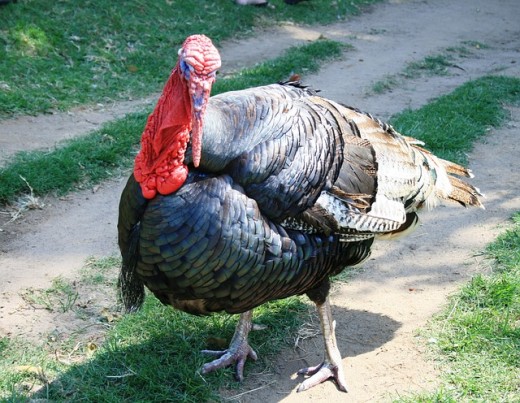
2 - ‘Frankenstein’ Turkeys
Did you know that more than 248 million turkeys were grown and slaughtered in the United States in 2011, with most coming from CAFOs – industrialized Concentrated Animal-Feeding Operations. (There is an acronym for everything.)
This factory-farming system creates a whopping 4.8 billion pounds of manure a year and relies on intensely crossbred birds that could never survive in nature. In fact, these obese turkeys grow so big so fast that many die of heart failure, or suffer bone fractures before slaughter. They also lose the ability to reproduce.
"Factory turkeys are all hybrid ‘dead-end’ birds and will die if not processed (eaten)," says sustainable farmer Frank Reese, owner of Good Shepherd Poultry Ranch. "The hybrid obese turkey suffers greatly because of its inability to support its weight on its undersized skeletal system."
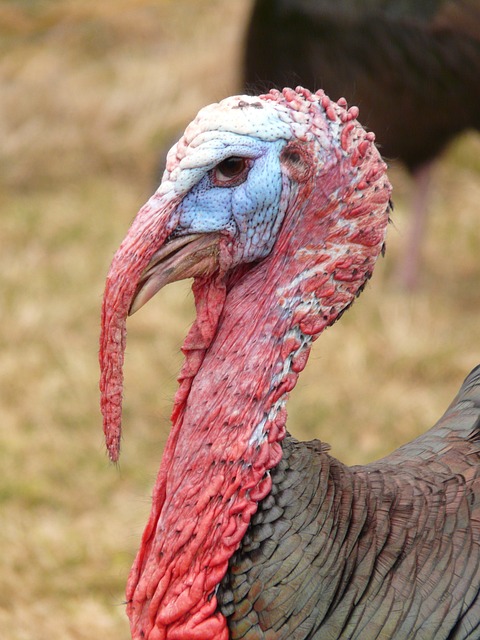
The Healthy Alternative
Are you the person in charge of preparing the Thanksgiving turkey? Then consider spending a little more on a heritage breed – original breeds that are known for great taste. Industrial turkey factory farms don't raise them because they grow too slowly, and farmers would have to spend more money on feed. Because of this, many heritage breeds have become rare and threatened.
It may seem controversial, but by eating them, you're supporting farmers who can keep these beautiful breeds from becoming extinct. Check out your Local Harvest online store to purchase a heritage breed turkey.
“Thanksgiving dinners take eighteen hours to prepare. They are consumed in twelve minutes. Half-times (football) take twelve minutes. This is not coincidence.” – Erma Bombeck
3 - ‘Enhanced’ Turkeys
Turkey is a delicious food but it can dry out and then its taste is dry and bland. So what does the turkey industry do?
They inject turkeys with salt-water or a solution containing potassium or phosphate food additives, so they become nearly impossible to overcook. These solutions can pose problems for people who need to cut back on sodium.
Did you know that some "enhanced" turkeys, as they are called, contain as much salt as a large order of fast-food French fries? And many physicians believe that all the phosphates added to processed foods are resulting in increased rates of heart disease and chronic kidney disease. About 30% of poultry products on store shelves are "enhanced," according to the USDA.
The Healthy Alternative
Avoid any turkey with the words "enhanced, self-basting," or "marinated in natural broth solution" anywhere on the packaging. Check the Nutrition Facts panel. Non-enhanced turkey typically contains between 55 and 65 milligrams of sodium. If the sodium count is any higher, it's likely the bird contains extra sodium or phosphorus.
Or go organic – purchase certified-organic turkeys. Caution: be aware that the USDA allows phosphate, potassium, and other brine solutions as additives in turkeys labeled as "all-natural."
May your stuffing be tasty, may your turkey be plump.
May your potatoes and gravy have nary a lump.
May your yams be delicious and your pies take the prize.
May your Thanksgiving dinner stay off of your thighs.
4 - Dangerous Stuffing
To save cooking time, you may be considering conventional boxed stuffing for your Thanksgiving dinner. Beware! Many familiar varieties are hiding some unappetizing secrets. For example, popular brands contain questionable ingredients like high-fructose corn syrup.
And monosodium glutamate or MSG, a flavor-enhancing ingredient that triggers migraines in some people. (See my hub “MSG and Fat Rats and Us.”) Look out for heart-damaging trans-fats, artificial flavors, and propyl gallate, a substance that has been linked to cancer. The Center for Science in the Public Interest lists propyl gallate as an ingredient to avoid.
The Healthy Alternative
Try an organic boxed stuffing to avoid those potentially harmful artificial ingredients. Or make your own from scratch.
Dangerous Food Additives
5 - False Food Dye ‘Freshness’
Artificial food dyes are found in everything from pie filling to cranberry sauce to bread. Made from petroleum ingredients, they are an inexpensive method to make food look fresher than it really is. The problem is some food dyes are linked to hyperactive behavior and sometimes contaminated with carcinogenic material.
The Healthy Alternative
If you cannot cook everything from scratch, look for organic processed foods. The strict certification bans the use of artificial food dyes. Instead, added colors come from spices and beet, berry and carrot juices.
Check gravy, cranberry sauce, juices, and even dinner roll ingredient lists for hidden food dyes. (For more information, read my “Interview with FDA Spokesperson.” )
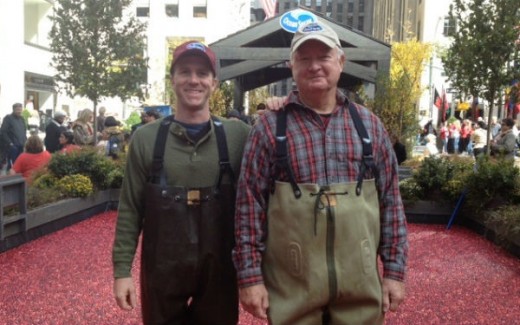
6 - Contaminated Cranberries
Domestic cranberries contain as many as 13 different residues of pesticides known to cause cancer, hormone disruption, or neurological problems. According to the nonprofit Organic Center, these cranberries are among the domestically grown fruits and vegetables that pose the greatest pesticide-exposure risk.
And according to the Rodale Institute, another organic research institution, cranberry bogs are often grandfathered in under federal and state clean water acts. This means they can discharge their pesticide-heavy water into nearby bodies of water without first cleaning it up.
The Healthy Alternative
Buy organic! Organic cranberries are becoming more popular and easier to find in grocery stores.
“My cooking is so bad my kids thought Thanksgiving was to commemorate Pearl Harbor.” – Phyllis Diller
7 - Pesticide-Tainted Potatoes
The United States Department of Agriculture (USDA) Pesticide Data Program has discovered traces of 37 different pesticides on potato samples. These include known and suspected carcinogens, along with neurotoxic and bee-killing chemicals.
Many pesticides are systemic, meaning they are taken up inside of the plant.
The Healthy Alternative
Since potatoes are often routinely sprayed with chemicals, it's healthier to opt for organic versions. Look for them at your local Farmer's Market.
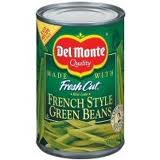
8 - Cancer-Causing Cans
Canned versions of cranberry jelly, pumpkin pie filling, and vegetables accompany the holiday meal, and that means so does BPA (bisphenol A ), the chemical used in the epoxy resins that line canned goods.
This chemical has been linked to heart disease, obesity, sperm damage, and even brain cancer among dozens of other problems. According to a 2009 study from the University of Texas, canned green beans contain the highest BPA residues.
The Healthy Alternative
Purchase fresh or frozen vegetables instead of canned whenever possible. And try your hand at making fresh cranberry sauce rather than buying canned cranberry jelly.
Now you are more prepared for your next healthier Thanksgiving turkey dinner. You don’t have to thank me for this health-saving information. Just send money! :)
Since I now carry the title of Semi-Official Mirthologist, I would be remiss not to leave you with a laugh. Check out this 'How to Cook a Turkey' recipe.
How to cook a turkey:
1- Buy a turkey.
2- Drink a shot of whiskey or scotch.
3- Put turkey in the oven.
4- Drink another shot of whiskey.
5- Set the degree at 375 ovens.
6- Drink 2 more whishkeys or shcotch.
7- Turn oven the on.
8- Take 4 whisks of drinky.
9- Turk the bastey.
10- Whishkey another bottle of get.
11- Stick a turkey in the thermometer.
12- Glass yourself a pour of whishkey.
13- Bake the whishkey for 4 hours.
14- Take the oven out of the turkey.
15- Floor the turkey up off the pick.
16- Turk the carvey.
17- Get yourself another scottle of botch.
18- Tet the sable and pour yourself a glass of turkey.
19- Bless the saying.
20- Pass and eat out.
© Copyright BJ Rakow, Ph.D. 2012. All rights reserved. Author, "Much of What You Know about Job Search Just Ain't So." Readers say my book provided what they needed to write a dynamic resume and cover letter, network, interview, and negotiate salary successfully. Includes a chapter for older workers.
- MSG and Fat Rats and Us
I commented earlier on the increase of obesity in the United States. That started me thinking. Could there be some chemical in our food that may be causing this tremendous obesity epidemic? - Interview with Redneck
It was not easy but I found a genuine, real Redneck to interview. You will be surprised at "Tom's" answers. Trust me.
- Interview with FDA Spokesperson - Part One
The FDA has approved of some Filthy Disgusting Additives in the food we eat. Bug juice? Flavoring from the beaver anal gland? And many more. - Interview with FDA Spokesperson – Part Two
Here are 8 more disgusting, distasteful, repellent, repugnant, loathsome additives approved by the FDA to be added to the food we eat. - Interview with FDA Spokesperson – Part Three
Third revealing interview with Mr. I. M. Clueless of the Federal Drug Administration about dangerous and gross additives in our food.



